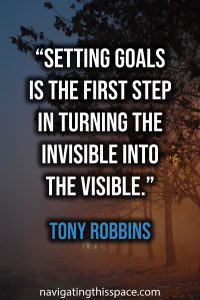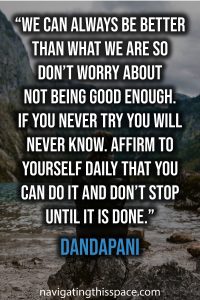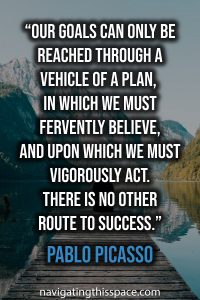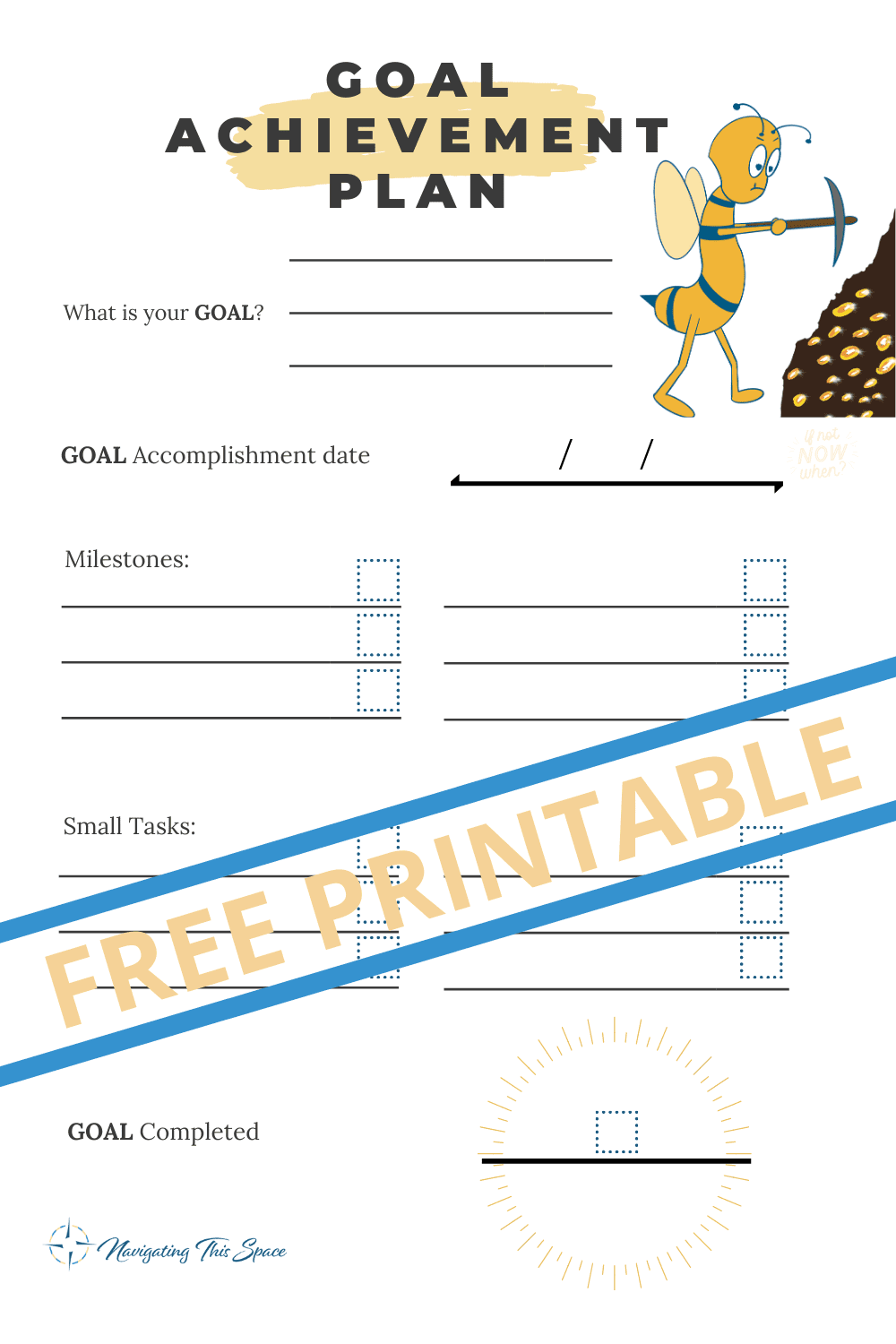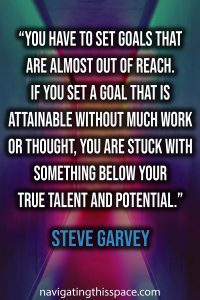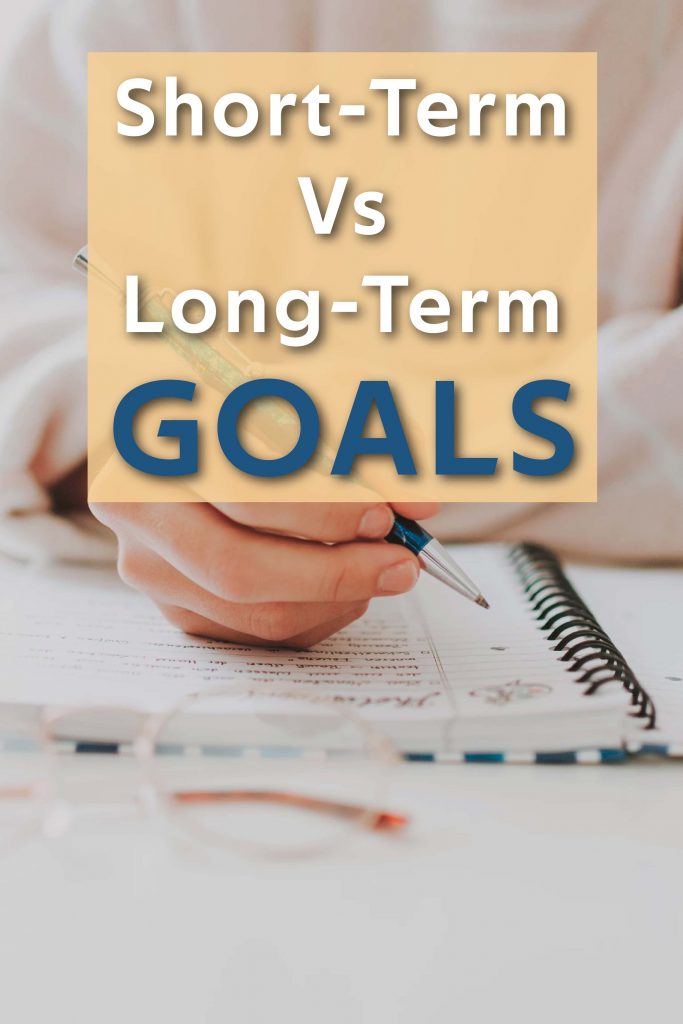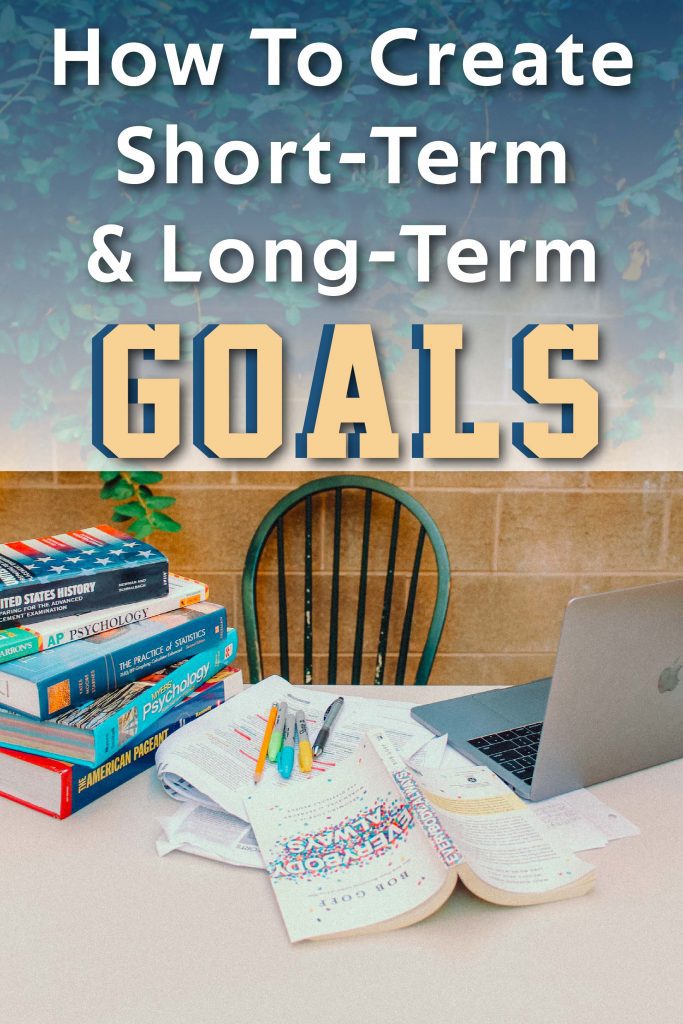We’ve all been told that in order to elevate in life, we must set goals and work hard to achieve them. But what if you don’t know where to start when it comes to setting a goal?
In this article, I’ll walk you through the different types of goals you can set for yourself and give you examples of short-term and long-term goals you can use for reference.
Why is setting goals important?
Have you ever dreamt of doing something big when you were younger? Do you daydream about doing something else rather than what you’re doing right now? That dream or wish can become a reality! Making a plan to achieve those wishes is the gist of goal-setting.
A dream with a date attached to it becomes a goal.
Whenever you hear the term ‘Dream Big’, it’s really telling you that whatever you dream can become a reality— if you’re willing to work towards achieving it.
Setting goals gives your life a sense of direction.
“Setting goals is the first step in turning the invisible into the visible.” – Tony Robbins
Creating a goal and working towards it doesn’t require you to have all the knowledge and steps before you take the leap. The thing about life and goal-setting is you’ll learn as you go.
Don’t be scared of trying because you never know where your journey might take you. A leap of faith is always required if you are to, first, set your goals, and second, achieve them all.
“We can always be better than what we are so don’t worry about not being good enough. If you never try you will never know. Affirm to yourself daily that you can do it and don’t stop until it is done.”—Dandapani
What is a short term goal?
Goals that can be achieved within a short period of time is a short term goal. That time period can range from a few weeks to a month, three to six month,s or six months to a year and a half. Anything above that timeframe enters the world of long term goals.
A quick example of a short-term goal is renovating/rearranging your living room.
It has a short time frame; typically about a month if it’s nothing major, and the finish line can be seen before you begin.
In most cases, the finish line shifts forward or back to incorporate changes. This is normal for all types of goals. Dates change, situations shift, and life happens, so you must remain flexible and willing to adjust in order to keep moving forward.
What is a long term goal?
Goals with a broader timeframe that are more elaborate in nature and cannot possibly be completed within a shorter timeframe is a long-term goal. This time period can range from two to ten years and beyond.
A quick example of a long-term goal is becoming a doctor.
The schooling takes forever and you’re required to do internships before you can qualify to take the test that will certify them as a doctor.
Long-term goals are the equivalent of running a marathon: you have to set your pace and keep going no matter what the elements throw at you.
Why are short term and long term goals important?
To achieve a steady pace of progression through life, setting short-term and long-term goals are necessary.
Short-term goals give you their reward in a shorter timeframe so your feeling of accomplishment is felt quicker than long-term goals.
You can work on your long term-goals for years without feeling that sense of accomplishment you feel when a short-term goal is completed. But that shouldn’t discourage you from working diligently to achieve your goals and dreams.
Whenever you decide to set a goal, in order to feel like you’re accomplishing something, you must set milestones.
What are milestones and how to set them?
Keeping track of your progress is imperative to understanding how far you’ve come and how much more you have left to go.
If you don’t know how to set a milestone, your first task is to create a vision of what your goal looks like when it’s achieved.
If you know where you’re going you’ll figure out how to get there.
For example,
You’d like to create a website to showcase your talents but you have no clue as to where to start. The first thing on your to-do list should be to research what you want your website to look like and how you want it to function.
That research stage is where you’ll find all your gems. All the ideas will start flowing and things you’d never have thought of are now must-haves.
Research is critical. It’s how you make a detailed plan that creates a route to achieving your goal. You don’t need to know where to start to get started but you will always find the information you need to create your plan of action.
“Our goals can only be reached through a vehicle of a plan, in which we must fervently believe, and upon which we must vigorously act. There is no other route to success.” —Pablo Picasso
Types of goal categories
There are many different types of goals you can work towards. Some work hand-in-hand while others have a route of their own. Choosing which one to work on at a specific time period will determine how you choose to progress in life.
Focusing on one goal at a time or practicing a slow multitask-routing will assist you in achieving more goals within a shorter period. Never try to multitask all your goals at the same time. It will delay your progress and inevitably push back your projected finish date indefinitely.
Career goals
What type of career interests you? Are you more comfortable working for yourself as an entrepreneur or do you like helping others to achieve their goals and dreams? Working in an environment that allows you to operate at your full potential is the goal, anything less is not worth your time or energy.
It’s okay to walk away from things that no longer bring you joy, especially a career where you feel like you aren’t progressing.
Setting a career goal should factor in everything that you feel is ideal.
Example of a short-term career goal
In three months I’ll be the employee of the month.
Example of a long-term career goal
In two years I’ll be in charge of my own division.
Simple, straight to the point, and with a specific date attached.
The goal raises questions like,
What do I have to do in order to become the employee of the month?
What steps do I take every day to keep on track to achieving this goal?
Who can I speak to who can expand my knowledge on what I should be doing?
The questions will keep flowing to you. Those questions are your base for creating your detailed plan of action.
Financial goals
Do you want to be a millionaire or just have enough money to live comfortably? Figuring out how you see your future-self living is the basis for creating a financial goal. If you want to live an elaborate life, you have to start creating goals to get your finances on track.
Example of a short-term financial goal
In three months, I’ll save five thousand dollars so I can travel to an exotic island and live for three months.
Example of a long-term financial goal
In five years, I’ll have fifty thousand dollars in stocks making me passive income.
Academic goals
Expanding our knowledge should always be a priority. With the world changing so quickly and technology advancing so rapidly, knowing how to move with the times is important in order to not be stuck in the past. Having an academic goal doesn’t necessarily mean you have to go to school. Taking a simple online course could be the best choice for you.
Example of a short-term academic goal
In five months, I’ll understand Photoshop so I can create my own designs.
Example of a long-term academic goal
In five years, I’ll be certified as a Photoshop expert by Adobe.
Health goals
Optimal health is what you should always be striving for. I always say that I work out because if someone is chasing me, I want to have the stamina to outrun them and then keep going. You don’t need to be Usain Bolt or Shelly-Ann Fraser-Price to think of yourself as healthy. Your body is different and you truly know what’s best for it.
Example of a short-term health goal
Today, I’ll drink all eight glasses of water that my body requires.
Example of a long-term health goal
In three years, I’ll be a super advanced yogi.
Personal goals
Never neglect your personal wants and desires when you’re creating goals. When you’re happy, you have the drive to achieve your other goals. Your mental health matters more than any academic, financial, or career achievement. Do something fun for yourself, always!
Example of a short-term personal goal
In five months I’ll learn to play a full song on the guitar without stopping.
Example of a long-term personal goal
In four years, I’ll compose my own song from scratch just for fun.
Setting goals shouldn’t be a hard task. If you desire to do anything, that thing can be achieved if you plan for it and work smartly towards it. Utilize all the short-term and long-term examples to get you started.
You can do anything you put your mind to, so stop holding yourself back and start setting those goals.
“You have to set goals that are almost out of reach. If you set a goal that is attainable without much work or thought, you are stuck with something below your true talent and potential.” —Steve Garvey

